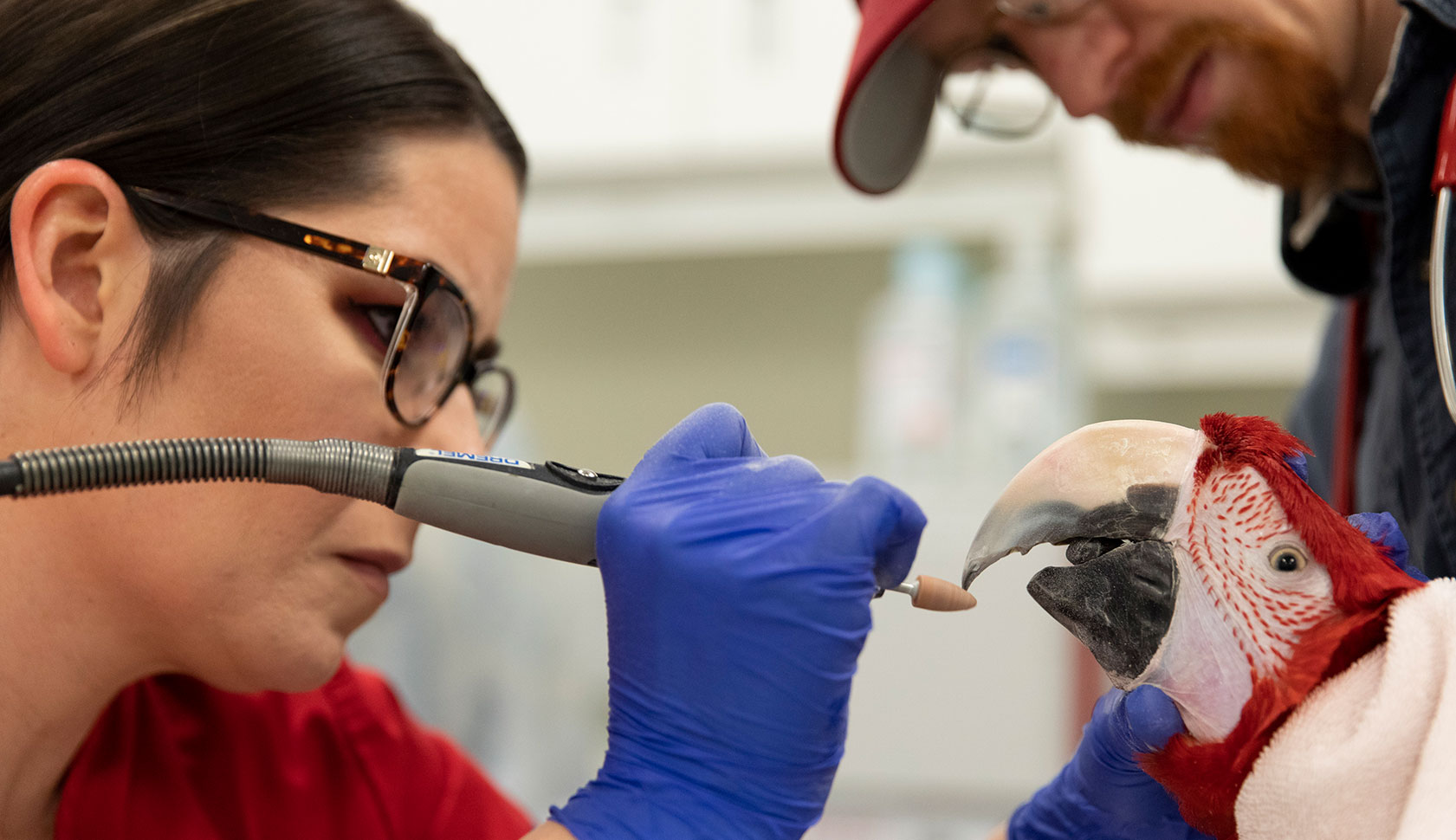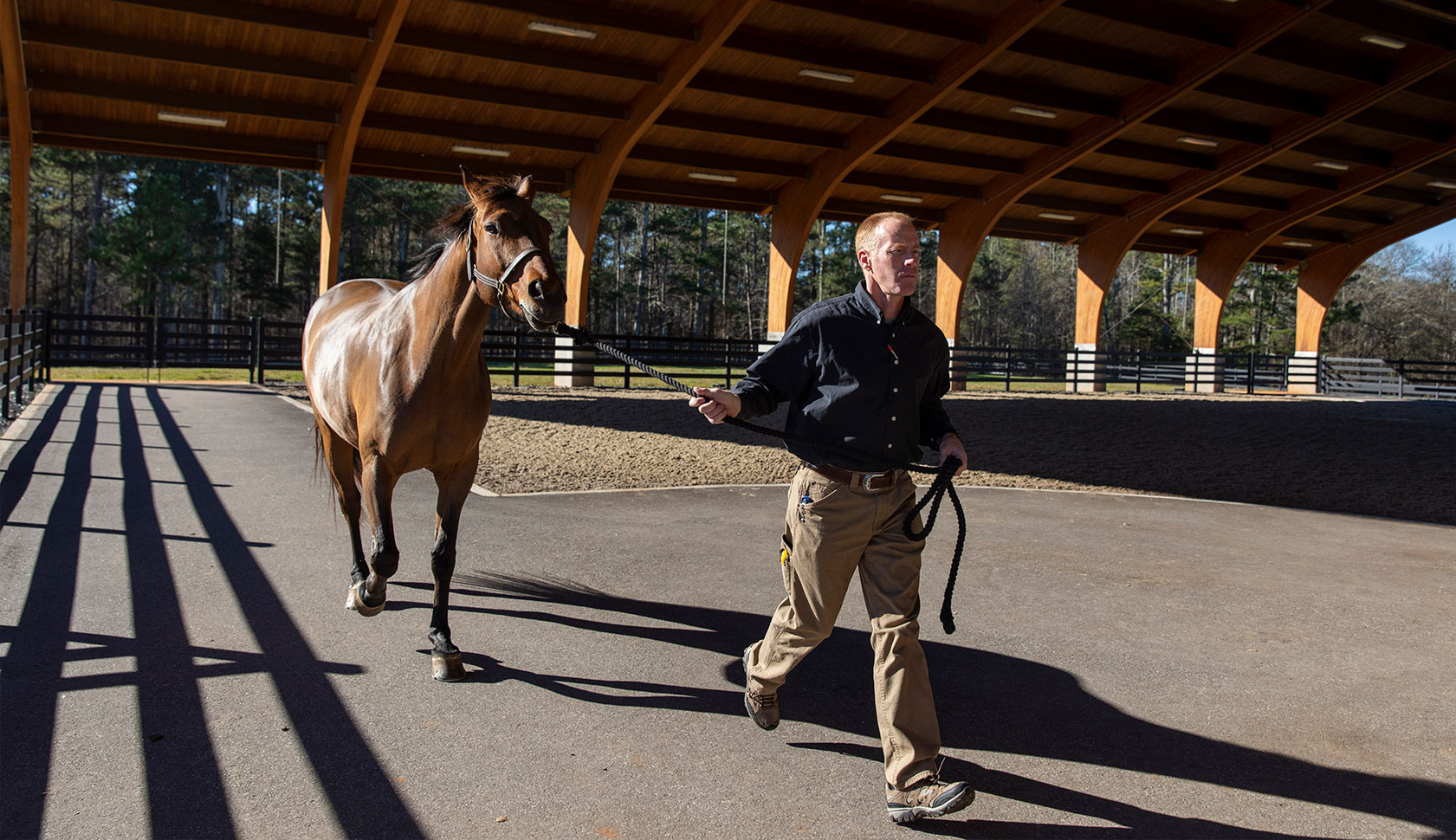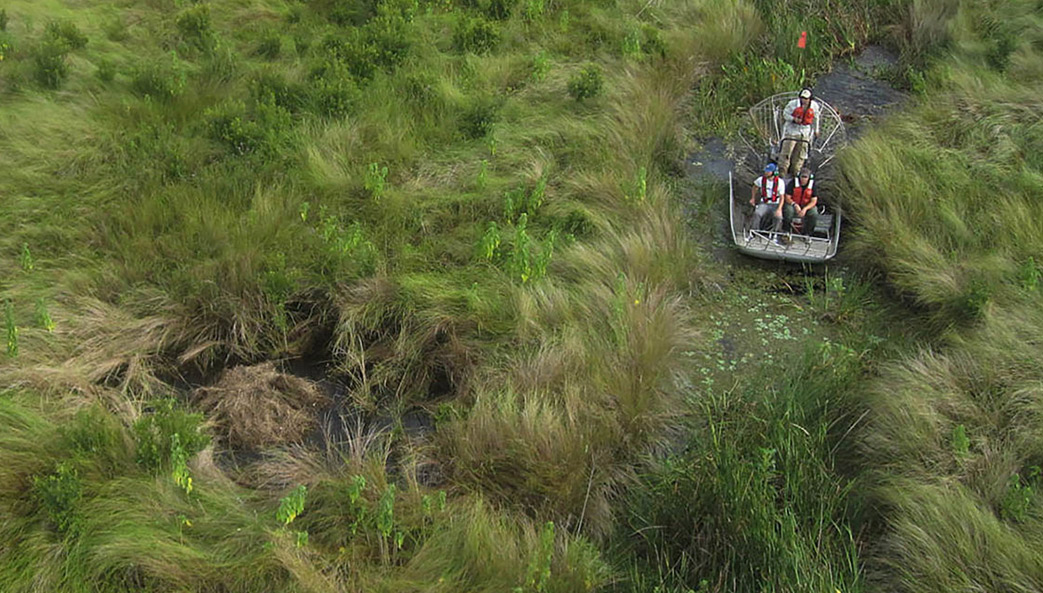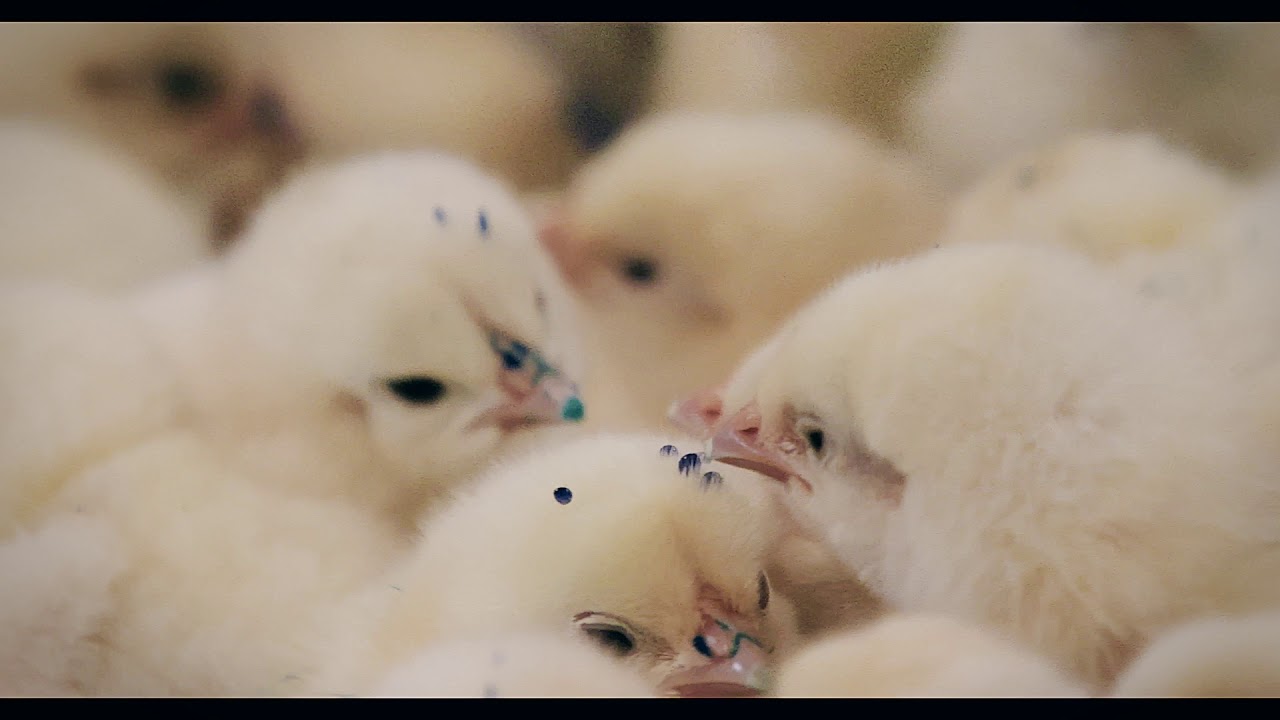Jet, a dachshund, walks in an underwater treadmill at UGA’s Veterinary Medical Complex as part of his therapy for back problems. It’s a simple exercise but one built on a complex foundation—the university’s stature as a leader in animal health research and treatment, supported by world-class faculty, state-of-the-art facilities and nearly 75 years of experience. In addition to training future veterinarians and treating patients like Jet, faculty at the College of Veterinary Medicine—ranked 10th in the nation by U.S. News & World Report—promote animal health and welfare, combat emerging infectious diseases, advance safe and sustainable food-animal production, and conduct research to enhance the lives of people and animals.
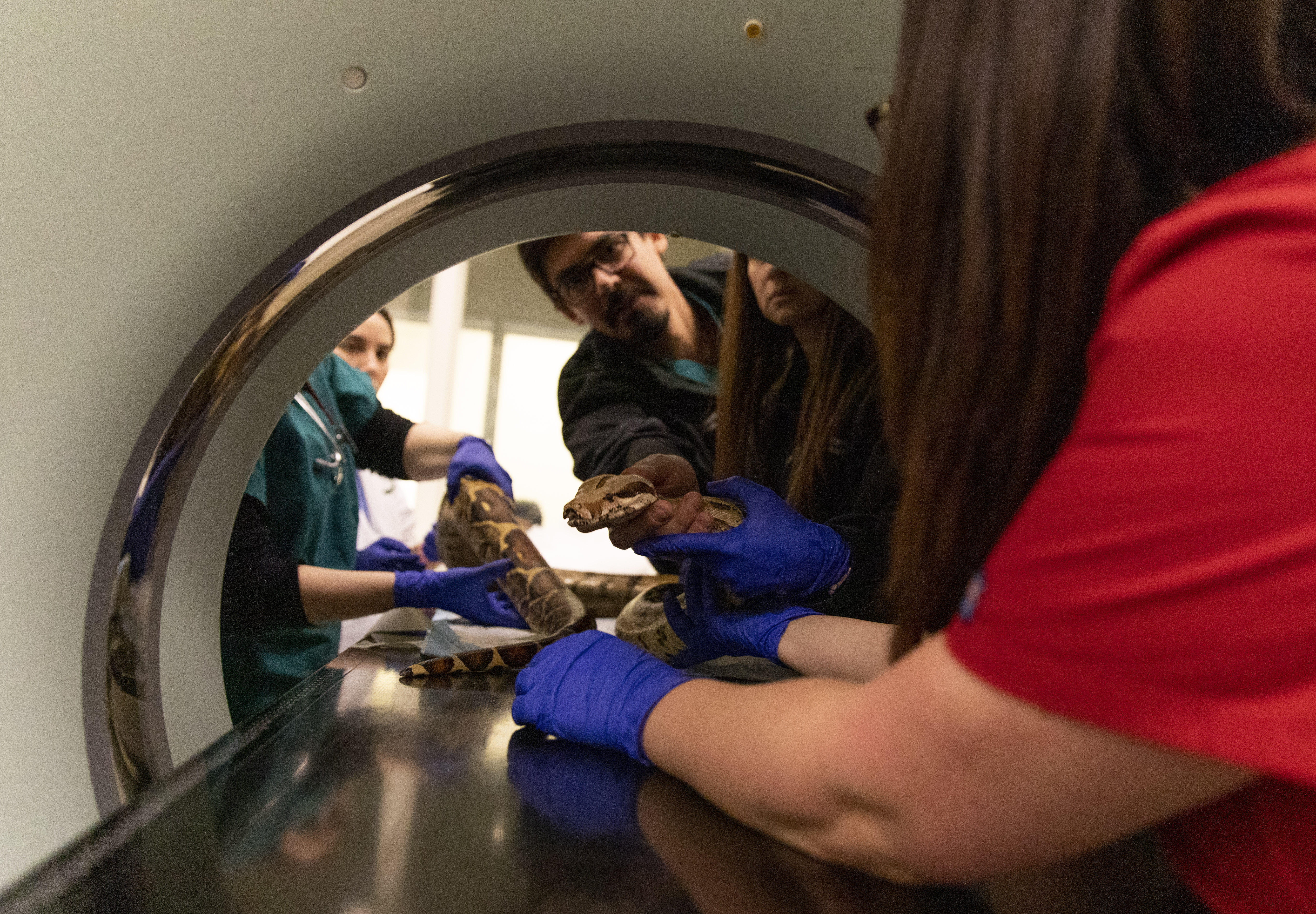 Anesthesiologist Dr. Andre Escobar (center) hands Mauvie, a boa constrictor, to a veterinary technician as they prep the snake for a CT scan in radiology. The 64-slice CT scanner is one example of the advanced technology available at the VMC.
Anesthesiologist Dr. Andre Escobar (center) hands Mauvie, a boa constrictor, to a veterinary technician as they prep the snake for a CT scan in radiology. The 64-slice CT scanner is one example of the advanced technology available at the VMC. 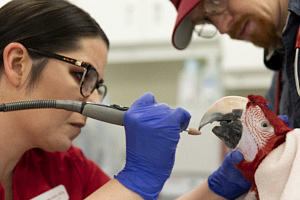 The hospital also has a 3T open bore MRI for large and small animals, as well as a linear accelerator that allows them to treat more types of tumors and, in certain cases, complete treatment in fewer sessions. The Zoological Medicine service treats exotic species from albino ratsnakes to zebras, including primates, large carnivores and aquatic animals. At right, zoological medicine resident Daniel Cutler holds G.W., a green-winged macaw, while registered vet tech Ashley McGaha uses a Dremel to shape her beak.
The hospital also has a 3T open bore MRI for large and small animals, as well as a linear accelerator that allows them to treat more types of tumors and, in certain cases, complete treatment in fewer sessions. The Zoological Medicine service treats exotic species from albino ratsnakes to zebras, including primates, large carnivores and aquatic animals. At right, zoological medicine resident Daniel Cutler holds G.W., a green-winged macaw, while registered vet tech Ashley McGaha uses a Dremel to shape her beak.
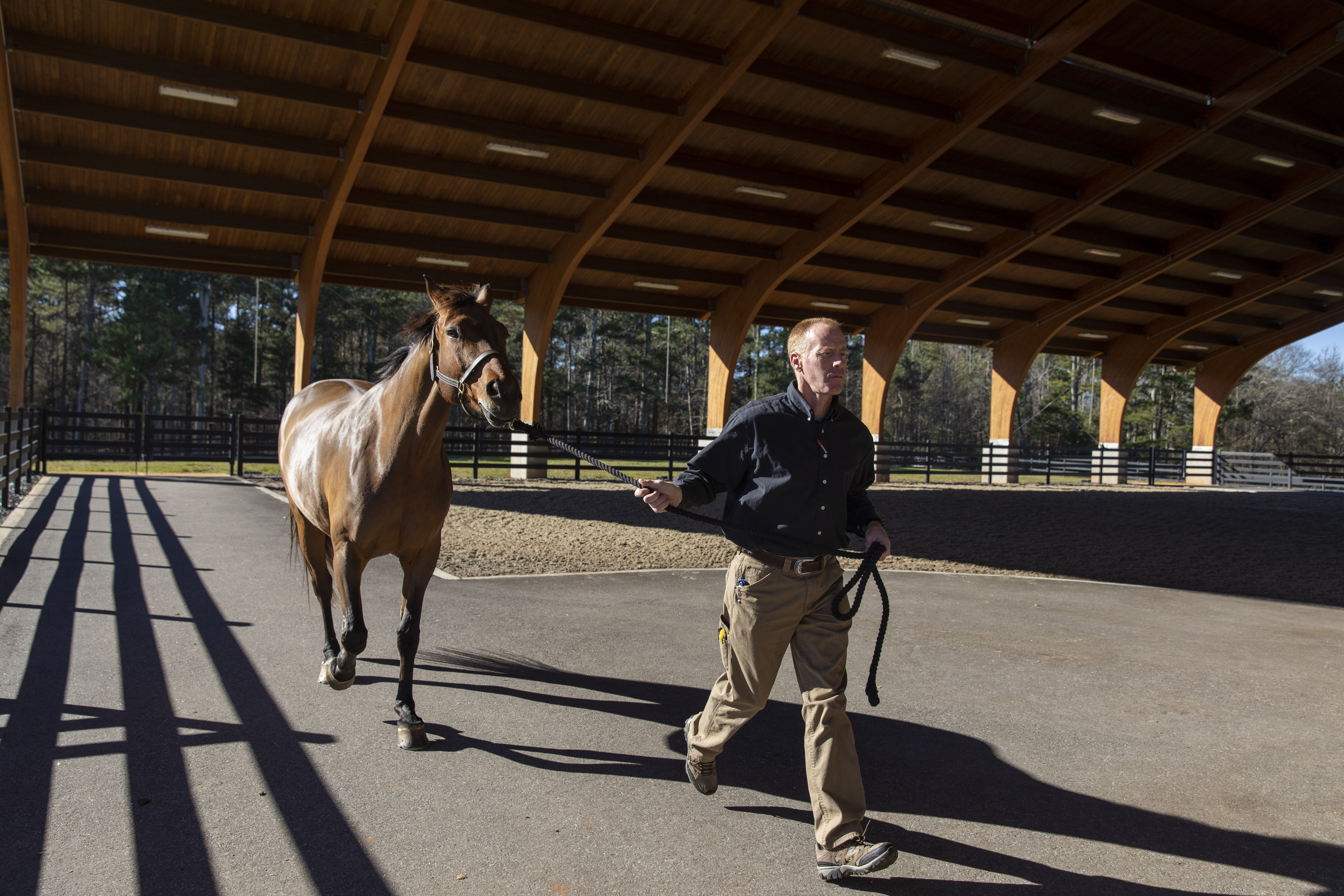
Horse handler Brent Walker trots Miss Chanel in the equine performance arena, where a care team will evaluate her gait. The covered arena is part of the VMC, built in 2015 and encompassing 300,000-plus square feet. Miss Chanel is one of nearly 2,000 horses treated at the hospital annually, with dogs, cats, food animals, birds, exotics and other animals bringing the total to more than 27,000 cases a year. The college’s production medicine team has an impact on more than 400,000 cattle annually in beef and dairy herds across the state, and its poultry medicine unit sees more than 8 million poultry. Additionally, UGA recently signed two licensing deals for poultry vaccine development; one will address Mycoplasma gallisepticum, which causes chronic respiratory disease, and the other will combat Mycoplasma synoviae, a bacterium that affects egg quality and causes 5 to 10 percent loss in egg production.





